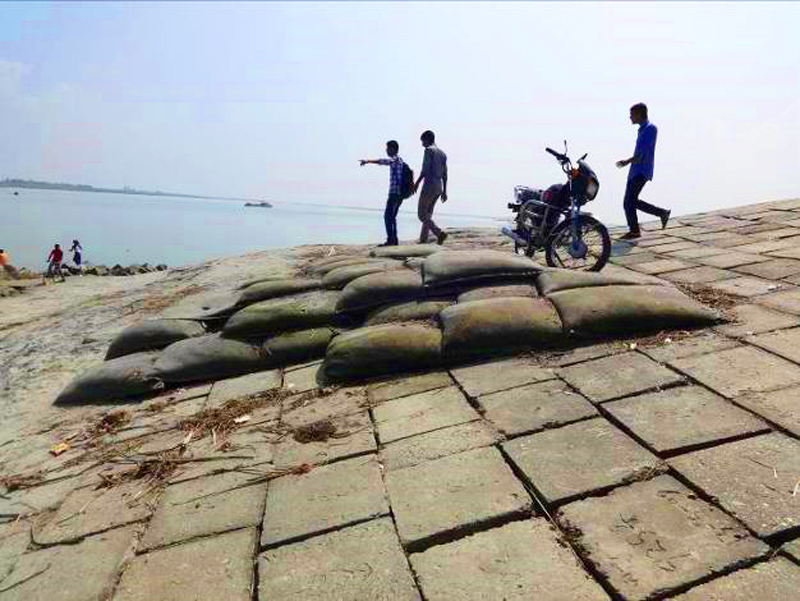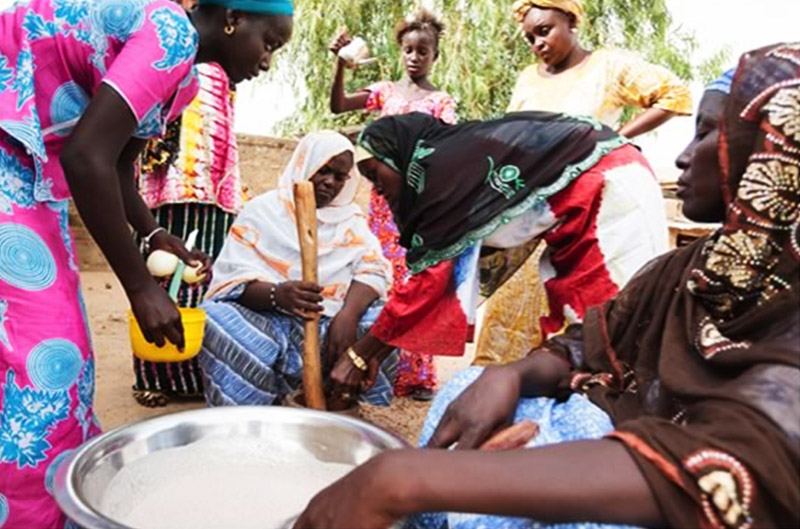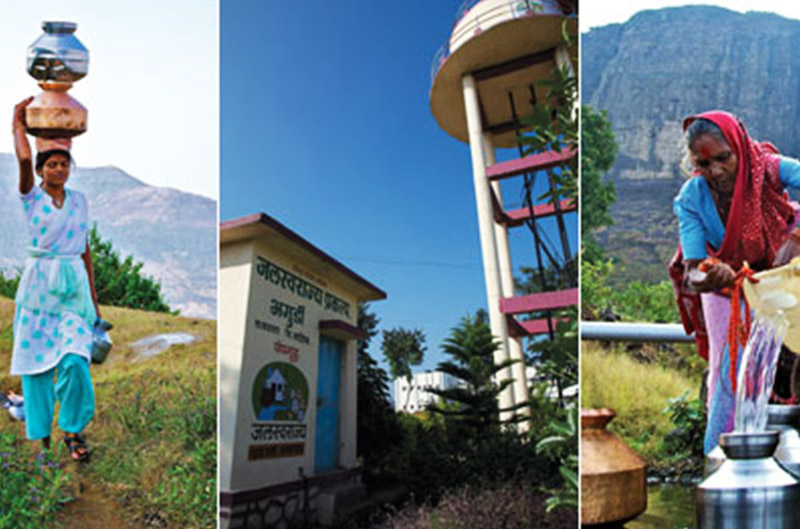Monitoring and Evaluation
Third Party Monitoring and Evaluation of Overall Implementation of Coastal Embankment Improvement Project (CEIP-I)
Project Name
Third Party Monitoring and Evaluation of Overall Implementation of Coastal Embankment Improvement Project, Phase-I (CEIP-I), Bangladesh
Client
Bangladesh Water Development Board (BWDB)
Donor
The World Bank
Project Cost
US$ 400 million
Duration
Ongoing

Bangladesh is located at the confluence of three major rivers – the Ganges, the Brahmaputra or Jamuna, and the Meghna – which flow through the country and drain into the Bay of Bengal through a low and flat topography. While the country has seen economic growth of about 6% per year during the last decade and substantial reduction in poverty, the sustainability and expansion of these successes face considerable challenges with its vulnerability to floods, heavy rainfall, erosion, rising sea levels and cyclonic storm surges affecting the nearly 600 km of coastal zones – especially with the changes in climate. Furthermore, the coastal zone hosts close to 28 percent, or 42 million people, of the population of Bangladesh and is characterized by rapid population growth.
The Coastal Embankment Improvement Project (CEIP) aims at restoration of the agriculture sector within the polder areas and rehabilitation of infrastructure with “build back better” designs that can guard against both tidal flooding and frequent storm surges.
SHELADIA is responsible for the Monitoring & rigorous Evaluation (M&E) of project performance as well as project impact. The primary purposes of these services include; (i) carrying out independent M&E of project progress, inputs, outputs, processes, outcomes and impacts in relation to the various project works and activities; (ii) carrying out independent monitoring of project specific operational risks and mitigation measures; (iii) providing independent and regular feed back to the Project Steering Committee on its evaluations of the above as well as on any other specific issue as directed by the PSC.
Services
- Comprehensive monitoring and evaluation framework;
- Baseline development for the key project indicators to track project inputs, outputs, outcomes, and operational risks
- Tracking key indicators throughout project implementation;
- High quality and rigorous data collection
- Monitoring and evaluation of governance risks of the project (as identified in the project Governance and Accountability Action Plan)
- Use of community knowledge and feedback to address delays in service delivery, or spotting contractor irregularities
- Capacity building of project implementing agencies to monitor impacts
- Development of a user-friendly, interactive, web-based computerized Project Monitoring Information System (PMIS) for project activities
- PMIS on-the-job training
- Implementation supervision of Environmental Management Plans (EMPs) and compliance with the Environmental Management Framework (EMF)
- Supervision of implementation of the Resettlement Action Plans (RAPs) and compliance with the Social Management and Resettlement Policy Framework (SMRPF);
- Impact evaluation program design
- Implementation Completion Report
YAAJEENDE Agriculture Development Project
Project Name
YAAJEENDE Agriculture Development Project
Client
USAID/Senegal, NCBA/CLUSA
Donor
USAID
Project Cost
US$ 40 million
Duration
Ongoing

YAAJEENDE, meaning “bounty” in the Pulaar language of Senegal, is one of the first programs of USAID’s global hunger and food security effort: Feed the Future (FtF). The objective of FtF is to work with host governments and development partners to tackle the root causes of global poverty and hunger. The program focuses on intensification of agriculture production, enhancement of agro-food links, promotion of good nutrition and enhancement of governance linked to food security.
SHELADIA is providing technical services and leadership in the areas of irrigation, water supply, and monitoring and evaluation. In order to promote effective irrigation technologies and to improve water resource management, part of SHELADIA’s responsibilities involve researching and making recommendations for initaitives to maximize use of water related resources including, but not limited to: pumps and drip systems, earthworks, aquaculture, livestock watering, and clean drinking water. More specifically, our team is also promoting the use of treadle, hand, and solar pumps.
Additionally, in collaborating with our partners on the project, SHELADIA is organizing Water Management Committees (WMCs) and training them in water action planning, resource mobilization and management, proposal writing, and other necessary skills to advocate for improved public water and sanitation services.
Services
- Analysis of existing surface and underground water resources
- Identification of production sites for field crops
- Assessment and recommendations for irrigation options
- Identify rehabilitation worthy water resource schemes
- Dissemination of appropriate irrigation technology scale-ups
- Design, install, rehabilitate and train stakeholders in new irrigation technologies
- Organize Water Management Committees around new water infrastructure
- Expand the network of commercial manufacturers of irrigation equipment (Treadle/Hand/Solar Pumps)
- Design and implement demonstration plots or exchange visits around irrigation and water source technologies
- Assist with design of project M&E system
- Implement project M&E system
- Design and make recommendations for project baselines and PMP
- Maintain knowledge management (KM) platform
- Design and implement the mid-term and final impact evaluations
Maharashtra Water Sector Improvement Project (MWSIP)
Project Name
Maharashtra Water Sector Improvement Project (MWSIP)
Client
State of Maharashtra, Water Resources Department, Irrigation Research Division
Donor
World Bank
Project Cost
US$ 394 million
Duration
2007-2014

Although Maharashtra – home to Mumbai – is the most industrialized state in India, more than half of the population lives in rural areas. As a result, agricultural production plays an important role in local and regional economic well-being.
The objective of the water sector improvement project was to strengthen the state’s capacity for multi-sectoral planning, development, and sustainable management of water resources; and to improve irrigation services delivery and irrigated agriculture productivity.
Sheladia’s services covered the establishment of a water resources regulatory agency, innovative pilots such as private commercial linkages and user-centered groundwater management, and participatory rehabilitation and modernization of about 286 selected irrigation schemes (9 major, 13 medium and 264 minor) covering about 670,000 ha of cultural command area.
Services
- Review and finalization of data collection formats
- System for flow of monitoring information
- Field verification of indicators
- Assessment of WUA performance
- Workshops for lessons learnt
- Selection of sampling methodology
- Finalization of survey instruments
- Training of enumerators
- Field testing of survey instruments
- Data collection
- Data cleaning and analysis
Additional Monitoring & Evaluation Projects
Project Name
Chashma Right Bank Canal Project Impact Monitoring and Evaluation (PIME) Studies, Pakistan
Client
Water and Power Development Authority (WAPDA)
Objective
Institutional strengthening of agricultural and livestock extension services, in particular technical assistance to develop and implement a Project Impact Monitoring and Evaluation System.
Services Provided
- Baseline Surveys
- Socio-Economic & Poverty Analyses
- Detailed M&E Program Design
- Operations & Maintenance and MIS Policy Recommendations
- Training and Capacity Building
Project Name
Ferghana Valley Water Resources Management Project- Phase 1: Monitoring and Evaluation Component, Uzbekistan
Client
Ministry of Agriculture and Water Resources
Objective
To improve water resources management in 67,000 hectares in the Ferghana Valley.
Services Provided
- Monitoring and Evaluation System Design
- Project Implementation Monitoring and Evaluation
- Impact Assessments
- Supervision of Environmental Management
- Resettlement Action Plans